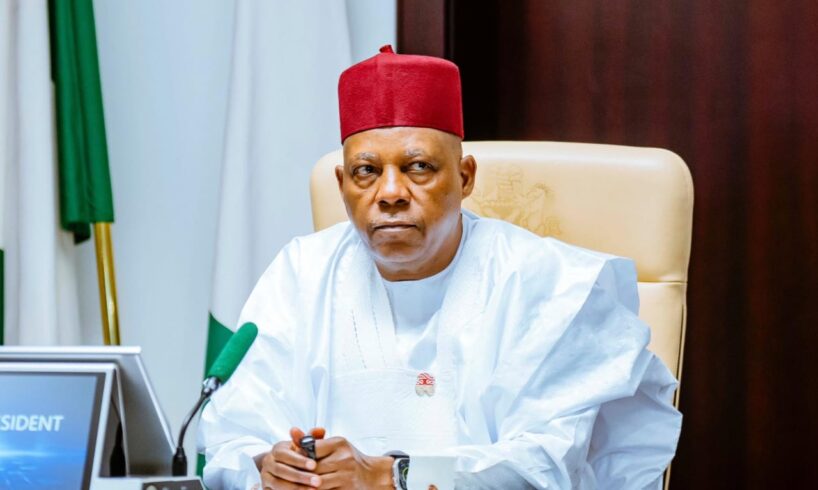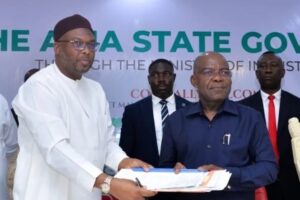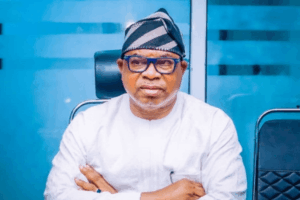
Vice President Kashim Shettima and other leading economic stakeholders have called on African countries to deepen their adoption of Islamic finance as a catalyst for inclusive and sustainable economic transformation across the continent.
Represented by the Special Adviser to the President on Economic Matters, Dr Tope Fasua, at the seventh African International Conference on Islamic Finance (AICIF) in Lagos, yesterday, Shettima emphasised that Africa’s youthful population and vast resources must translate into shared prosperity.
The event, themed “Africa Emerging: A Prosperous and Inclusive Outlook,” was jointly organised by Metropolitan Law and Metropolitan Skills Limited, in partnership with the Securities and Exchange Commission (SEC).
The Vice President outlined key elements of Nigeria’s ongoing economic reforms under President Bola Tinubu’s Renewed Hope Agenda, including exchange rate unification, subsidy rationalisation, tax and customs modernisation, and trade liberalisation, noting that these measures have boosted Nigeria’s foreign reserves to above $40 billion and improved its ratings with Fitch and Moody’s.
He described the country as a cornerstone of the African Continental Free Trade Area (AfCFTA) with a pivotal role in driving the region’s $3.4 trillion market.
Highlighting the transformative impact of Islamic finance, Shettima said instruments such as Sukuk, Takaful, Murabaha and Waqf have successfully financed critical infrastructure and promoted financial inclusion.
He revealed that proceeds from Nigeria’s Sukuk issuances, now in their seventh cycle, have funded over 120 major road projects, spanning nearly 6,000 kilometres.
Shettima further explained that takaful insurance provides safety nets for millions of previously excluded households, while waqf endowments support education, healthcare, and small business development.
The Vice President urged African policymakers to leverage the ethical and socially responsible principles of Islamic finance to achieve balanced growth.
He cited emerging efforts in countries like Egypt, Senegal, Kenya, and South Africa to strengthen regulatory frameworks for Islamic banking, green sukuk, and responsible investing.
According to him, Africa must mobilise domestic capital through innovative instruments such as green sukuk and diaspora bonds, asserting that “Africa’s future must be financed from within, guided by principles of justice, inclusion, and sustainability.”
Conference Chairperson, Ummahani Ahmad Amin, explained that AICIF was conceived as a collaborative platform to promote Islamic finance as a viable alternative funding source for Africa’s development.
She noted that while global Islamic finance assets reached $3.88 trillion in 2024, Africa still trails behind in exploiting its full potential to bridge its estimated $170 billion yearly infrastructure deficit.
She emphasised the need to address challenges such as limited liquidity, weak market infrastructure, and low investor awareness, while also ensuring that emerging technologies like artificial intelligence are guided by ethical standards.
In his remarks, SEC Chairman, Mairiga Katuka, highlighted the rapid growth of Nigeria’s non-interest capital market under the Capital Market Masterplan (2015–2025), with sovereign sukuk raising over N1.4 trillion to finance 124 strategic road projects nationwide.
He revealed that the country now boasts 19 registered halal mutual funds managing over N112 billion in assets, compared to just one in 2008, and reaffirmed the SEC’s commitment to regulatory innovation in areas such as digital sukuk and blockchain-based transparency.
Also speaking at the conference, the Emir of Kano and former Central Bank Governor, Sanusi Lamido Sanusi, urged Islamic finance institutions to channel more resources toward small and medium enterprises (SMEs) in underserved communities.
He stressed that Islamic finance can only achieve its purpose when it directly tackles financial exclusion and poverty reduction.
Sanusi called for bold, grassroots-focused strategies that dismantle cultural and social barriers, particularly those limiting women’s access to finance.





